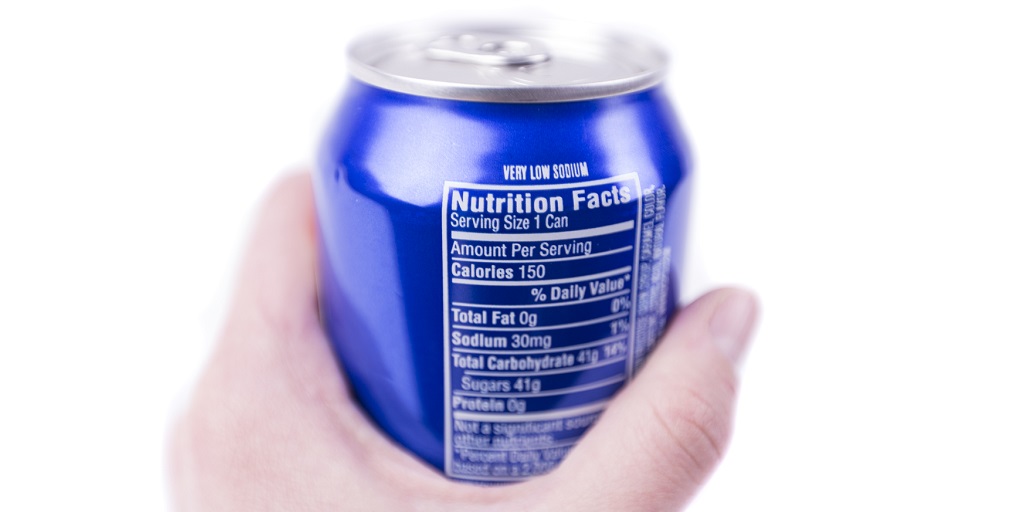
Concerns over beer sugar content and claims

Sugar claims and content in beer is coming under scrutiny as Food Standards Australia New Zealand (FSANZ) undertakes public consultations of sugar content claims and a series of product recalls.
Whether it is beer, or other offerings by brewers such as seltzers suggesting they have no sugar as a dog whistle to health-conscious consumers, or beers which could contain too much in the way of sugars leading to unintended in-can refermentation and thus product recalls, sugar has increasingly been of concern in the industry.
Since April 2022, the issue of carbohydrate and sugar claims has been wrapped up with that of energy (kilojoule) labelling. The mandates would see brewers forced to include nutrient content on beer, which has not been the case for alcohol products previously.
FSANZ is currently assessing the proposals to clarify the permissions for making voluntary carbohydrate and sugar content claims on alcoholic beverages, the organisation told Brews News.
Refermentation concerns
In a separate issue to the sugar and carb claims concerns being raised by FSANZ, but which also highlight the issues of sugar in beer, an influx of bigger ‘imperial’ beers with higher ABVs including fruited sour styles – many of which have tended to be unpasteurised.
A number of product recalls in recent times, where residual sugars and ambient temperature storage has led to continued and unintended fermentation in cans, has also underlined the issue.
For excise purposes, beer is a beverage that is brewed and contains no more than 4 per cent by weight of sugars – both monosaccharide and disaccharide – according to the Australian Tax Office.
“Beer is mostly less than 1 per cent sugar,” explained WellBrewd industry consultant Anthony Clem.
“So it’s really your very big beers or whether you’ve primed it with sugar that would be a problem.
“You’ve also got malted barley, your primary source of sugar, you’ve got bitterness in there as well – it needs to be above 4 IBUs to be considered beer by the ATO.
“So it’s probably more your big Russian imperial stouts, Belgian triples, things like that which are facing this issue where you’ve got high alcohol and high bitterness that’s balancing out the sugar.
“It could also potentially be an issue for your sours if you’re adding a lot of sugar and getting them balanced, but if you’re adding sugar to a beer and you’re not pasteurising it, you’re opening yourself to more than just the regulatory issues.”
This is particularly the case for brewers who add sugars but do not pasteurise, or who are engaged in brewing sweeter beers or alternatives to beer such as seltzers.
“Simple sugars are consumed in most fermentation, but if they have really sweet beers, like ginger beer, they could be a problem and also be considered an RTD.
“However, lots of people are using stevia, so sweetening it without a disaccharide.”
Sugars claims by alcohol manufacturers
The issue about sugar content has been on FSANZ’s radar for several years but obviously for a different reason than potential unintended refermentation.
Back in 2017, the Australia and New Zealand Ministerial Forum on Food Regulation first discussed sugar claims in relation to alcoholic beverages, namely their ability to make sugar-free claims. FSANZ also looked at claims made about carbohydrate components of alcohol – namely “no carb” or “low carb” beers.

Like with energy labelling, the onus will be on brewers to identify the sugar content and ensure packaging is up to FSANZ standards.
There are already in existence multiple food and beverage related regulations which could impact the claims made by breweries about their beer, and also the information provided to consumers about what is in that beer.
The Australia New Zealand Food Standards Code says that foods cannot claim to be “low sugar” if they contain more than 2.5g of sugar per 100ml.
ABAC, the Alcohol Beverage Advertising Code which covers predominantly alcohol marketing and placement, says that alcohol cannot claim to have a “therapeutic” effect, either making health claims or indicating that it can make a positive change to a person’s mood or help them relax. It has also been on the radar of anti-alcohol lobbyists.
When the issue about carb and sugar claims was introduced to an FSANZ forum back in 2017, Ministers were concerned that making claims about nutrient content is misleading and that alcohol is being promoted as a healthier choice for consumers when public health advice is to limit alcohol intake.
By December 2021, FSANZ completed a preliminary analysis of regulatory and non-regulatory options for energy labelling of packaged alcoholic beverages to identify a preferred approach.
The assessment suggested that on-label energy content information is the best option to address the problem and is “generally supported by stakeholders as the preferred option”.
FSANZ at the time of the initial assessment said that there have been no studies which specifically examine the effects of sugar claims on consumers’ perceptions of alcoholic beverages, however there is some evidence to suggest that consumers may make “inappropriate assumptions” about alcohol making nutrition content claims about carbohydrates.
One of the major concerns in the wider industry is the cost of testing batches for sugar, carbohydrates and energy for a panel on packaging.
There is also the issue with packaging. If nutrient labels become mandated, and beers that are now marketed as ‘low carb’ and ‘no sugar’ – from Hahn Crisp and Carlton Dry to Mighty Craft’s Better Beer – will have to change packaging.
According to a cost analysis commissioned by FSANZ, one-off costs from label change scenarios range from between $859 to $7,315 per SKU – at 0.8 to 6.8 cents per beverage container unit. The total estimated cost of the labelling change to alcohol manufacturers is estimated to be $61.2 million to $521.4 million.
The cost per SKU is the highest for cans relative to bottles and casks. This is because most cans have an inner and outer package as they are assumed in the model to be beer beverages.
Making claims about sugar and carbohydrate content in alcohol is prohibited in the EU and Canada, FSANZ said, but permitted in the US.
FSANZ held targeted consultation with the alcohol industry, public health and consumer groups and jurisdictions in late July 2022.
Public consultation is anticipated in October 2022 over energy labelling and late 2022 for carb and sugar claims.
Update: This article was updated on the 14th September 2022 to clarify the difference between the issue of residual sugars in beer and the FSANZ proposals to curtail sugar and carbohydrate claims by alcohol manufacturers.



